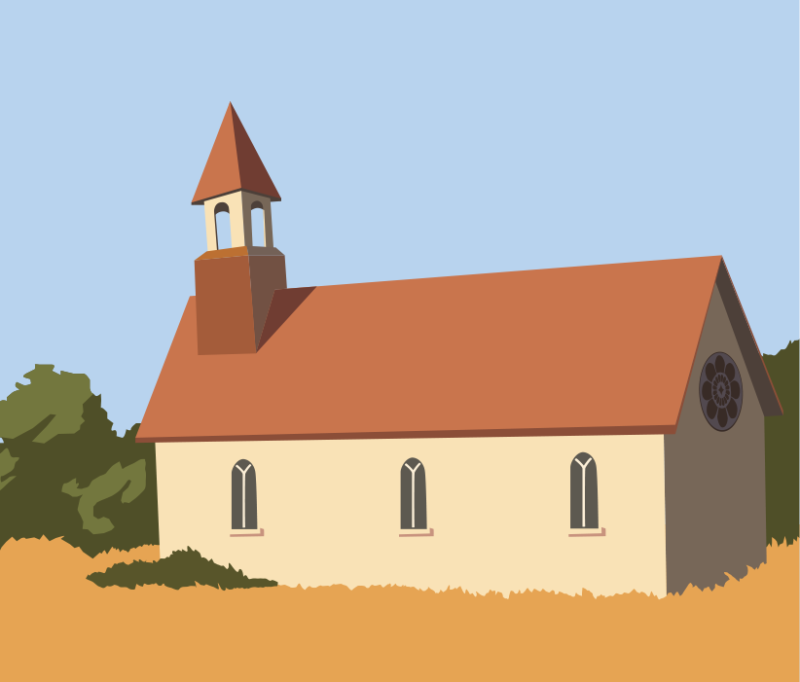Sometimes I look at my bank account through online banking and wonder where all the money went. I can track it, but still, it went faster than I expected. I can’t help but wonder why I wasn’t born in the proverbial lap of luxury. You know, the place where silver spoons and golden platters are plentiful. The place where money is the last thought on anybody’s mind. The minks, diamonds and Mercedes crowd who glitter when they walk down the street. What was I doing when God passed out tickets to the gravy train? I can see it now: I was probably in the closet trying to organize the boxes and bundles that would service those boarding the train. When my ship came in, I was probably out on the lake rowing a leaky canoe. Whatever happened when the lap-of-luxury tickets were handed out? I was absent. I ended up being born with a plastic spoon in my mouth.
In fact, you might say, I was born at the door of poverty. We weren’t really poor. Well, maybe we were, but we didn’t know it. We had food on the table and a warm place to sleep. Handsewn and hand-me-down clothes were always available. I don’t remember one time going to school hungry or naked, and I don’t remember being teased because I wasn’t dressed in the latest fashions. We didn’t know about fashion. Everyone was in the same boat. Growing up in a small rural town in Arizona, without a TV, no one knew how the other side of the track lived. We just lived and learned the lessons life had to teach.
At the door of poverty, with the wolf scratching at the door, I learned some valuable lessons money didn’t buy. I got an education in the finer things of life.
I gained a great respect for proverbial baling wire and duct tape. If machinery broke down, it wasn’t a trip to the dealership – it was a trip to the barn to find out what you could use to fix the problem. Many creative solutions came when the pocketbook was empty and the store was miles away. The family car I drove to take my driver’s test was an old station wagon. Daddy had rigged two wires together to replace the starter that had gone out weeks before, and the gearshift was stuck in the floorboard. If you lifted it too much, it came right out in your hand. The man who sat down in the passenger seat to test my skills looked at the wires with raised eyebrows, but when I accidentally pulled the gearshift out of the floor, he gasped. I smiled as I stuck the gearshift back in the floor and then said, “Oh, don’t worry. It always does that.” I don’t think he was reassured. I think he reconsidered his job and his safety as we pulled onto the street, but we made it, and I got my license. Back then, the government had not stuck their fingers into the safety issues of automobiles.
When I got married, I found a man like my dad. He could fix or build anything. My husband built three houses. The first was a fixer-upper that belonged to his great-grandmother. He tore out a wall and put in an attic room. He put in carpet and the finishing touches. Just as it was complete, he moved his family to Wickenburg, Arizona. They looked for houses to buy, but they soon realized it could be done more easily and cheaply by building. The family lived in an old school bus until my husband had the new house dried in. I found out by experience that dried in simply means a floor, roof and outside walls. You use blankets tacked over the doorways for privacy. I know because I lived in a dried-in house.
He spent every waking hour after work on the house. Three years later, he had a mansion. It was magnificent: carpet, hanging fans, expansive decks and porches decorated with wrought iron. He did the work himself.
Later, we decided to move to a ranch in Taylor, Arizona. It wasn’t that we didn’t like the house in Wickenburg. We recognized a need to be near our folks who lived in Taylor. We packed up and moved to our ranch. The kids lived in a tent and horse trailer. My husband and I slept in an over-the-cab pickup camper. It was wonderful living out in nature. You could see the stars, and the silence was magnificent. You could walk for miles and not hit civilization. I loved it. That is until winter came. Then we learned what it was like to heat rocks to put at the foot of the bed to keep our feet warm. We learned to respect running water and electricity.
In spring, we moved down to the dream basement of our new house. When I say dream basement, I’m referring to the brick walls and concrete floor that would soon become the basement. It was April, so we figured it would be warm soon. My husband stacked up some bricks and hoisted some sheets of tin on the top for a roof. We put in the bed, the chest of drawers and our hanging clothes in our makeshift room.
El Niño brought the wettest April in years. We would wake up to stick our toes into the icy water that had accumulated under our bed. We’d wade through the water to get the broom to sweep out the flood. Sometimes our makeshift roof leaked. Then we’d have a literal waterbed, as my husband called it.
We got the house dried in during the fall. I thought it was wonderful to have outside walls even if the inside walls were ghost walls. Those are walls that have studs where the wall should be, but you can walk through them.
At times I’d get impatient and say, “Honey, why don’t you hire someone to hang the rest of the sheetrock? Why don’t you let someone else stucco the house?” His response was always the same: “I don’t know what I’m doing until I do it. How can I tell someone else what to do?” I came to understand him to mean, “This is my creation. Allow me to finish it. I need to be able to say, ‘I did it.’”
I wondered what this kind of lifestyle was doing for the kids. Surely, they would suffer, but time told the tale. Our daughter came home from college one weekend. She was ecstatic about her black 1978 Pontiac. She said, “My friend said, ‘When I saw the car, I knew it was your car. It was such a Marsha car.’” She told him about the white station wagon she drove when she was in high school. It was a classic. It had a looped wire for an ignition. You had to pull the wire and step on the gas to start the car. She also told him about living in a room with no windows or doors and the sound of a hammer banging long into the night.
I could see that she wasn’t hurt a bit. Neither were the other 10 children. They all learned as I did that the door of poverty is a creative place and the wolf scratching at the door only makes you more urgent to fix your own problems. When God created the world, He pronounced it, “good.” The creation was a huge do-it-yourself project. Humans have a basic need to create and announce to the world that they did it.
It was never easy living in my husband’s creative state. I have learned to appreciate the little things. I never take running water for granted. I ignore the unfinished parts of the house and enjoy the newness of the last finished project. We spent time dreaming about how this and that would be. Sometimes the dreaming is more fun than seeing the actual completed project. In your dreams, you can make it any way you want. You don’t even have to be practical and worry about the financial limitations. I know it’s going to take 10 years to live in a finished house. I know there will be moments of joy and family projects that will make the waiting worthwhile. When it’s done, we can say, “This is our creation, and we did it all ourselves!"






